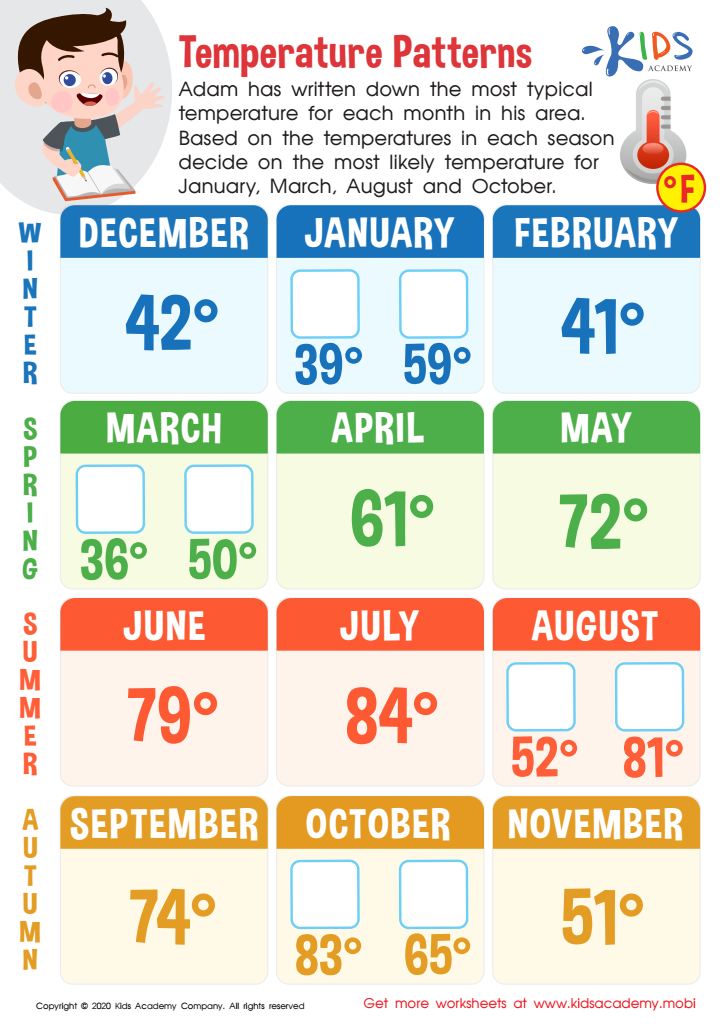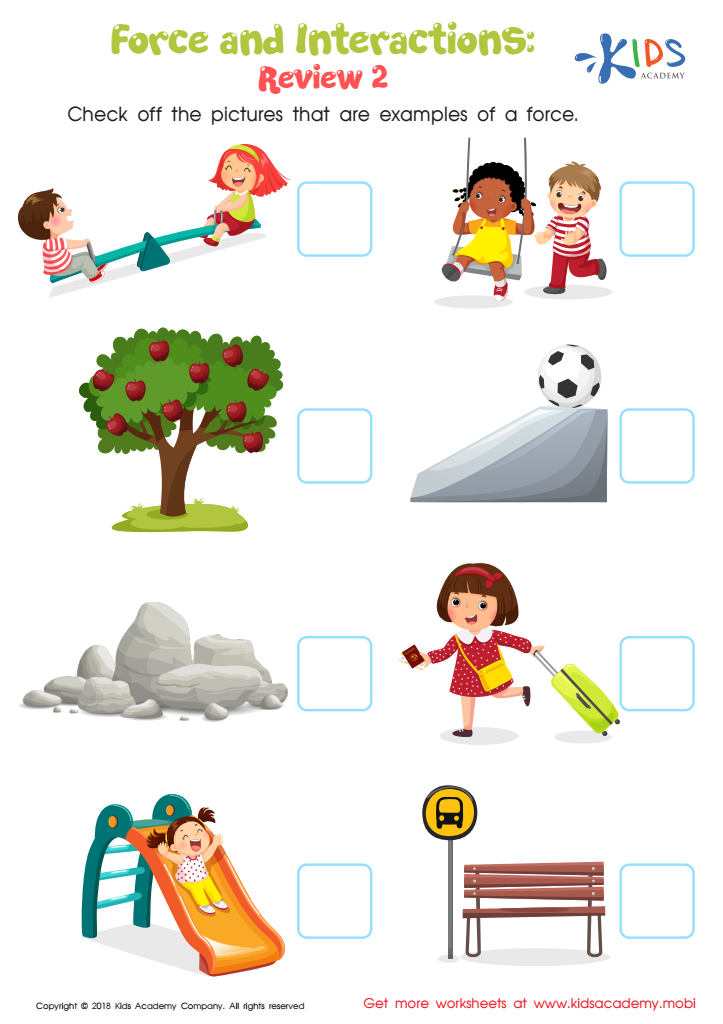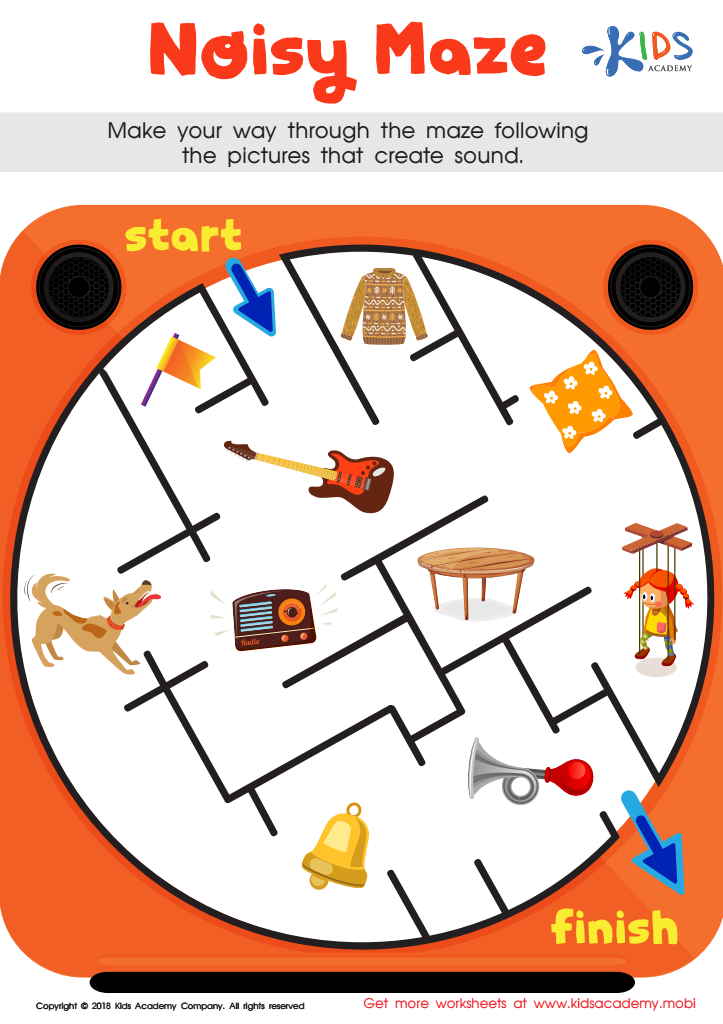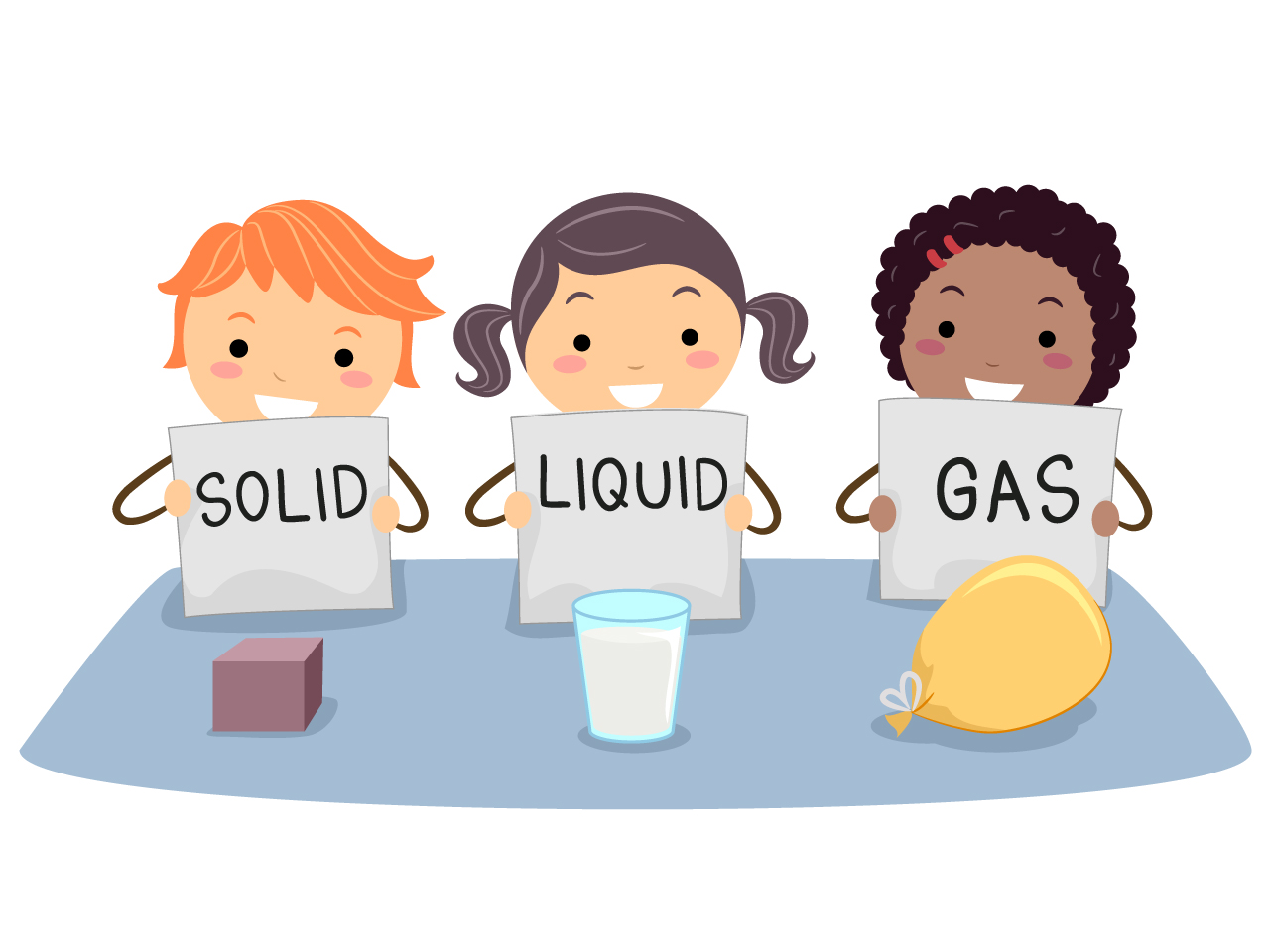Problem-Solving Skills Normal Physical Science Worksheets for Ages 4-6
3 filtered results
-
From - To
Discover the perfect addition to your early learning toolkit with our "Problem-Solving Skills Normal Physical Science Worksheets for Ages 4-6". Designed to foster critical thinking and analytical skills, these engaging worksheets introduce young minds to fundamental concepts in physical science. Children will explore cause-and-effect relationships, make observations, and test their reasoning abilities through fun and interactive activities. Perfect for classroom or at-home learning, these resources help children build a solid foundation in science while developing vital problem-solving skills. Experience an exciting blend of education and imagination that propels young learners toward success.


Temperature Patterns Worksheet


Force and Interactions: Review 2 Worksheet


Noisy Maze Worksheet
Parents and teachers should deeply care about enhancing problem-solving skills in young children, particularly within the realm of physical science, because these formative years are crucial for cognitive development. Problem-solving skills are foundational for children’s ability to think critically and navigate life's challenges. Engaging with physical science in everyday scenarios—such as observing the weather, understanding gravity through playing with balls, or exploring cause and effect with water play—fosters curiosity and encourages a scientific mindset.
When children actively participate in solving simple problems, like figuring out why a toy car moves faster on a smooth surface than on the carpet, they develop critical thinking and reasoning skills that extend beyond the immediate activity. These abilities promote higher-order thinking, enhancing their capacity to approach complex problems methodically in the future.
Moreover, emphasizing problem-solving skills helps children become resilient learners. They learn to experiment, make hypotheses, and deal with failure, viewing it as a stepping stone rather than a setback. This resilience is not only pivotal for academic success later on but is also a crucial life skill. Additionally, these activities often promote collaboration with peers and adults, strengthening social and communication skills.
Thus, nurturing problem-solving skills through physical science concepts for ages 4-6 plants the seeds for lifelong learning, sparking curiosity, and building a solid foundation for future academic and personal success.
 Assign to My Students
Assign to My Students















